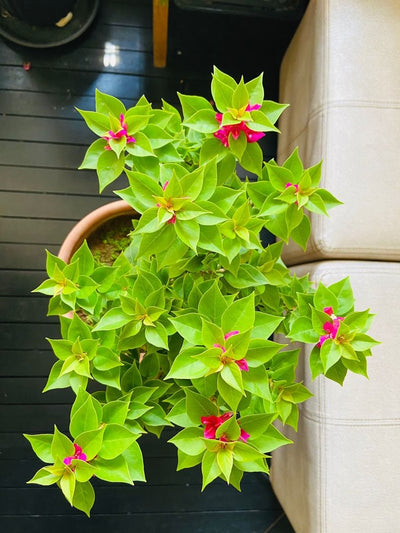Are Mums Perennial or Annual? Annual Vs Perennial Mums
Being a gardener, you must have often gotten confused–Are Mums Perennials or Annuals? Find out the answer in the below article!
Mums are known for bringing colors throughout the fall. You can grow them in garden beds, or in pots, or keep them in your balcony, rooftop or patio; they do just fine everywhere! The mums are herbaceous plants, favorite of many gardeners, but one question that arises first while planting this fall-flowering plant is–are mums annuals or perennials?
Annual vs. Perennial Plants

They live an entire life cycle from seed to flower in a single growing season. All parts of the plant die annually, except the dormant seed or bulb, that make up the gap between one generation and the next.
On the other hand, perennials sustain for many growing seasons. Though the top part of many perennials die back every winter in cold climates and grow again in spring from the same root system.
Are Mums Perennials or Annuals?
Chrysanthemums or mums are tender perennials that are often grown as annuals. If hardy enough, they can be grown as perennial, depending on the climate and growing conditions.
There are hardy cultivars of mums available for most climates. If you want to grow them as a perennial, ask for the right varieties in your local nurseries.
Can you Grow Mums as Perennials?

Yes! you can grow mums as perennials! Plant winter-hardy varieties in the spring, instead of late summer or fall. As mums have a shallow root system, this measure will allow their delicate roots to establish well enough. If you want to sparkle your late-season garden with the pretty fall colors of mums, plant them in late summer or early fall and handle them as annuals.
If you live in a hot, frost-free climate, i.e., USDA Zones 10-11, plant heat-tolerant mums in fall or winter. They will continue to grow well till spring but to save them in summers, grow them in part sun and save from harsh afternoon sunlight. Don’t forget to water well to keep the soil moist.
Perennial Chrysanthemum Varieties
1. Chrysanthemum x morifolium is a fall-flowering perennial, available in colors that range from red, orange, white, yellow, and lavender. Plant these mums in spring or fall. This variety is ideal for USDA 5-10.
2. Mammoth Series is a cross between C. x morifolium and C. weyrichii, which forms single to semi-double flowers. These series produces a full range of mum colors; Mammoth ‘Red Daisy’ offers a semi-double red flower with a yellow center, and the ‘Coral Daisy’ has pink coral shade. This variety is ideal for USDA 3-9.
3. Igloo Series is a less hardy variety that you need to place in a protected area. They produce double flowers in a full range of colors. This variety is ideal for USDA 4-9.
4. Weyrich Chrysanthemum is a dwarf species that belongs to a cold region of the Kamchatka Peninsula. It flowers in late fall and spreads as a groundcover. ‘White bomb’ is a cultivar that features daisy-like white flowers, and ‘Pink bomb’ forms pink flowers. This variety is ideal for USDA 6-9.
5. Arctic Chrysanthemum (Arctanthemum arcticum, syn. C. arcticum): This species displays white flowers, though the most common cultivar is ‘Red Chimo’ that has pink flowers. It flowers in early September. This variety is ideal for USDA 6-9.
6. Rubellum Mum (Previously Dendranthema zawadskii latilobum): Also known as a hardy mum, old-fashioned mum, and heritage mum, the plant produces daisy-like flowers. The popular varieties include ‘Clara Curtis’ (Pink), ‘Princess Margaret’ (Bright pink), ‘Mary Stoker’ (Apricot yellow), ‘Sheffield’ (Pale pink), and ‘Duchess of Edinburgh’ (Dark pink). This variety is ideal for USDA 3-8.
7. Indian Mum (Chrysanthemum indicum): It is best suited for warmer climates. The flowers are used in vinegar and beverages while the leaves have medicinal usage. They are also used to make aromatic tea. This variety is ideal for USDA 9-11.




Leave a comment